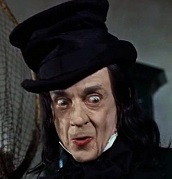|
VitalSigns posted:We got in a lot of World War II chat: does anyone know how the US actually got involved in World War I after Wilson campaigned on neutrality and smeared his opponent as a warmonger? Did Wilson always secretly want to go to war but was waiting until reelection? Did something suddenly make him change his mind just 5 months after promising not to go Over There? The British did it by seizing or turning back US ships, saying "sorry old bean, there is a bloody war on you know!". The Germans couldn't match the British fleet on the surface, so they built submarines... and started torpedoing US shipping without warning. This didn't make them terribly popular.
|
|
|
|

|
| # ? Jun 2, 2024 16:13 |
|
VitalSigns posted:Rather than stand by and watch the stubborn unwavering sweatshop love that ruined the minimum wage thread poo poo up this one too, I'm going to attempt to introduce a new subject. Well, it's a topic a lot of people on both sides of the issue want to debate. As for Wilson, it's pretty clear that he came to view that outcome the war was of monumental importance to the entire world, but the actions of Germany were what mattered most. Wilson didn't mind the status quo- America providing financial support to the Allies, while staying out militarily- but the German High Command came to feel that the winning the war was contingent on 'starving' Britain, which led to unrestricted submarine warfare, which then led to American entry. dilbertschalter fucked around with this message at 15:38 on Nov 20, 2013 |
|
|
|
dinoputz posted:Maryland During the French and Indian War / Seven Years War, the British government expended a large amount of money, men, and materiel defending their North American colonies. Aside from men, from time to time they would attempt to get the colonies' governments to reimburse, or make in kind donations, to defray these costs. Sometimes it was more successful than others. I believe Amherst was able to get Benjamin Franklin to rustle up some wagon trains and pack horses from Pennsylvania when he asked nicely, for a campaign he was embarking on. Massachusetts was always good for a thousand pounds as well. However, if you looked at a chart of yearly donations by colony, Maryland is completely zeroed out; in other words every other colony (except Georgia I believe, but who can blame the debtors colony for being poor?) gave something to the war effort, except Maryland. Apparently the properieter of the colony had to agree with the legislature to do this, and they never could. At the beginning of the French and Indian War, the westernmost limit of Maryland was defined by Fort Cumberland. Raiding got so bad in the area, however, that Maryland decided, we'll just abandon it, and the westernmost limit of Maryland will now be Fort Frederick, about 90 miles east.
|
|
|
|
tooterfish posted:During the war both Britain and Germany attempted to stop the US trading with the enemy. Is that entirely the fault of the Germans though? If we had sent US Navy escorts to "patrol the sea lanes" and confront any British ship attempting to turn back neutral shipping to Germany the way we torpedoed German suns even when they were obeying international law and refraining from no-warning sinkings, there would have been confrontations with the British too. Why didn't we break the British blockade?
|
|
|
|
Because there's a huge gulf between turning someone away (even seized ships were returned I believe), and blowing huge gaping holes in them without any warning? Not entirely Germany's fault, no. The reason they were using subs in the first place is because if they'd tried a surface blockade the Royal Navy would've blown them out of the water. Submarines aren't really equipped to capture ships, just sink them. But them's the breaks. Of course you could be cynical and say that most of the money was being made with the allies, which could go some way towards explaining the "neutral, but bellicose" attitude towards Germany. The war pulled the US economy right out of the shitter after all. tooterfish fucked around with this message at 16:07 on Nov 20, 2013 |
|
|
|
Wilson tried to keep the US out of the war for as long as he could, but after the pro-Unrestricted Submarine Warfare faction of the German gov't/military won out, there was just no going back - the U-boats kept sinking ships with American citizens on them and the Germans were cutting out their own ambassador to the US as far as trying to resolve it diplomatically. They knew that unrestricted warfare would result in the US joining the war, so once they decided they were going to do it, they just let it all hang.
|
|
|
|
It also didn't help that the Germans were trying to goad Mexico into invading the United States so that they would be too distracted to help Britain.
|
|
|
|
Fojar38 posted:It also didn't help that the Germans were trying to goad Mexico into invading the United States so that they would be too distracted to help Britain. That was probably unfeasible (how exactly would Germany support Mexico in its bid to regain the American Southwest?), but it was probably the straw that broke the camel's back regarding the US entering WWI.
|
|
|
|
That does bring up another question though. Mexico pretty much went "you're joking, right?  " in response to the Zimmermann telegram, but did the USA know that? " in response to the Zimmermann telegram, but did the USA know that?
|
|
|
|
Funambulist posted:That does bring up another question though. Mexico pretty much went "you're joking, right? They did which is why we didn't invade Mexico in 1917. Well, they had a general take a quick look at what would happen and his conclusions were that the US would stomp them in every conceivable measure, the German financial aid was too good to be true, and even if by some miracle they won all the new territory they would win would be comprised of English speakers which would be a nightmare to govern. Not to mention that Mexico was in a very advantageous alliance with Argentina, Brazil, and Chile who had their own strong ties to the US and those three nations would be really pissed at Mexico if it declared war on the US, especially Brazil which would later declare war on Germany itself. The US on the other hand was actually really neutral at that time with a good deal of the public believing that it was an English hoax to goad us into war and it wasn't until Zimmerman himself admitted sending it that it was proven to be genuine. That along with resuming the unrestricted submarine warfare was what caused us to enter the war on the allies side. e: To expand on just how neutral the US was from 1915-1917 you have to remember that the huge immigrant waves that had just arrived from Europe were from either Germany or Ireland, so the German immigrant population of course is going to side with their home nation, and the Irish loving hated the British for occupying their nation, doubly so after the very brutal way they crushed the Easter Rising in 1916. Really, only rich aristocratic Americans with ties to England were pro allies until 1917. A Winner is Jew fucked around with this message at 17:51 on Nov 20, 2013 |
|
|
|
Funambulist posted:That does bring up another question though. Mexico pretty much went "you're joking, right? The Mexican response was pretty good. It was basically "All the money in the world that you can offer us to buy weapons won't do any good if we're attacking the only weapons manufacturer of note on this continent and you don't have a navy to deliver any of yours". I'm pretty sure the British who furnished us the telegram (because the Germans used British diplomatic cables to send their secret war incitement offer tooterfish posted:Because there's a huge gulf between turning someone away (even seized ships were returned I believe), and blowing huge gaping holes in them without any warning? Well sure, but even when the Germans did accede too our requests to warn ships and rescue passengers, our convoys would just respond "Ha, no. If you try anything our destroyers will blow you away," and I don't think we defied the British like that, but perhaps I'm wrong? VitalSigns fucked around with this message at 17:50 on Nov 20, 2013 |
|
|
|
There was also the small fact that Mexico was in a state of civil war at the time the Zimmerman telegram was sent, and the US Military had already been making small incursions into Mexico to hunt down Pancho Villa's raiders. Mexico's central government barely existed outside of Mexico City and would not have had any ability to wage an international war.
|
|
|
|
Something of note that also compounded the effects of the Zimmerman telegraph, a few days beforehand, the RMS Laconia had been sunk by a U-boat(not the more famous 2nd ship in WW2 that sparked the Laconia incident), two more Americans died, including a child, and more importantly, there had been a reporter for a Chicago Tribune on board who surprisingly, had a lot to say about being torpedoed and his article became a huge national story.(you can read his article here)
|
|
|
|
VitalSigns posted:I'm pretty sure the British who furnished us the telegram (because the Germans used British diplomatic cables to send their secret war incitement offer The telegram was sent via a special telegraph line set-up specifically to allow closer coordination between the Germany Foreign Office and the German Embassy in the US during Wilson's proposals for a peace summit. Zimmermann sent it through there because he figured they were heading towards war already anyway because of the U-boats, so it shouldn't matter that he was using the line for pretty much the total opposite of what it was made for. The British intercepted it because the line went from Germany, to Sweden, then through Land's End in England to make the trans-Atlantic jump.
|
|
|
|
VitalSigns posted:I'm pretty sure the British who furnished us the telegram (because the Germans used British diplomatic cables to send their secret war incitement offer The British did. The British actually went out of their way to intercept it a second time less clandestinely such that the Germans would be fooled into thinking that the plaintext was stolen out of the Mexican embassy instead of the British having deciphered German encryption
|
|
|
|
WhiskeyJuvenile posted:The British did. The British actually went out of their way to intercept it a second time less clandestinely such that the Germans would be fooled into thinking that the plaintext was stolen out of the Mexican embassy instead of the British having deciphered German encryption I didn't see anything in there about the British giving the US the Mexican response...did they? Amused to Death posted:Something of note that also compounded the effects of the Zimmerman telegraph, a few days beforehand, the RMS Laconia had been sunk by a U-boat(not the more famous 2nd ship in WW2 that sparked the Laconia incident), two more Americans died, including a child, and more importantly, there had been a reporter for a Chicago Tribune on board who surprisingly, had a lot to say about being torpedoed and his article became a huge national story.(you can read his article here) Wow, this guy Floyd Gibbons posted:The jibbering, bullet-headed Negro was pulling directly behind me and I turned to quiet him as his frantic reaches with his oar were hitting me in the back. In the dull light from the upper decks I looked into his slanting face, eyes all whites and lips moving convulsively. Besides being frightened, the man was freezing in the thin cotton shirt that composed his entire upper covering. He would work feverishly to get warm. The black crewman is one of the only people who knows what the hell he's doing, and all our lily-white journalist can think of is how annoying the man's well-justified fear is and that it's a good thing he doesn't have a coat because he'll row harder to stay warm. 
VitalSigns fucked around with this message at 19:34 on Nov 20, 2013 |
|
|
|
menino posted:One book I read about Southern industrialization was Walter Licht's "Industrializing America", his claim was that elites in the antebellum South didn't want to have large numbers of slaves concentrated in one area, so factories did not spring up as they did in the North. That was probably part of it. They were definitely very afraid of slave revolt, and putting hundreds of slaves together under one roof would have stoked their paranoia. Another problem with slave manufacturing is that slaves engaged in constant small-scale acts of covert rebellion like slowdowns, damaging tools, and deliberately botching tasks. In a plantation setting this could be mitigated by close supervision and in any case it didn't add up to be that damaging when it came to agricultural tasks. In a more complex industrial setting it would be more difficult to monitor the slaves for compliance, and assembly line production with expensive machinery would allow them to wreak considerable havoc even with those limited means. A slowdown at any point on the assembly line impedes the entire process, and something as simple as "accidentally" dropping a hammer in a machine as it was running could stop production for days and incur large expenses for repair and replacement. There was actually a really interesting article in Smithsonian magazine a few months ago about Thomas Jefferson's nail factory, which he operated with slave labor. This was a really simple form of manufacturing in which Jefferson would purchase nail rods from a supplier and then young enslaved boys would use hand tools to produce nails for Monticello's needs and for sale to merchants. Jefferson initially lost money on the proposition because a significant proportion of the rods would be wasted in the course of production, in spite of the fact that he had hand-picked his favorite and in theory most trustworthy slaves to make the nails. To reduce losses he assigned overseers to monitor the boys closely and dispense severe beatings to anybody who shirked, damaged his tools, or wasted material. Under this harsh regime, the nail factory was able to actually turn a handsome profit.
|
|
|
|
EvanSchenck posted:That was probably part of it. They were definitely very afraid of slave revolt, and putting hundreds of slaves together under one roof would have stoked their paranoia. Racist brutal Taylorism is truly the purest form of Taylorism.
|
|
|
|
With regards to the WWI piece, there are some elements that are missing from the discussion so far that deserve to be much more substantive than they are. First, the United States was deeply, deeply dependent on the returns from its massive financial investment in France and England. Those two countries had expanded their war debt nearly infinitely during the 1915-17 period, and most of that debt was coming from American banking firms and the American stock markets. The financial magnates of the era were exceptionally powerful political players, too. So they lobbied Congress and the President hard when the possibility that the French and English might lose -- and their debt would either never be repaid or repaid in some awful devalued way -- became really clear. Second, important elements of early-20th century Late Victorian culture as manifested in the United States created a deep undercurrent for war, and war on the side of the English. This was by no means universal, but it did have an influence on the tone and timing of debates that is important to understand. Victorian culture had a uniquely militant conception of manhood, in which physical strength and virility were improved by and proved by participation in physical exertion and violence that was dangerous, expensive, and, importantly, all-male. These cultural tendencies were made worse by an overwhelming fear of "sissification" (though that term is of course contemporary.) Many people, of whom Theodore Roosevelt is probably the most obvious and powerful example, felt that the technological and social changes post-1880s that were part of the Second Industrial Revolution were badly damaging American men and making them more effeminate, and only some real shock to the system could bring the younger generation back to true manhood virtues. Roosevelt was so convinced of the neccessity of war that he practically trained a volunteer army from 1914 onwards. Third, American politicians and legislators increasingly feared German dominance of the continent. There were two reasons for this - the first was that, since the 1880s or so, the United States had found mutually agreeable ways to coexist with the colonial empires and trading regimes of Great Britain and France. The Open Door Policy in China, the Clayon-Bulwer Agreement in Latin America, increasing trade between American and Canada, and more were a status quo the US had a strong interest in preserving. In addition, our previous aid (through money lent and arms sold) to the Entente Powers meant that we rightly feared that, in the event of a German victory, the US might face serious financial and commercial retribution from a bitter German government. There was also a geographical argument -- Great Britain had a powerful navy, while France had a powerful army, and both were counterbalanced by other factors - France by the threats from other Continental armies and Great Britain by her dependence on foreign trade and vulnerability of her far flung empire (much more remote than France's). Germany, if she could dominate the continent, would have, reasoned some American policy actors (influenced, no doubt, by consultations with English and French diplomats), no such limitations. She could build a powerful army and navy, she would have few immediate threats to chasten her, and so on. Fourth, linguistic, political, and cultural nationalism, always intense in the United States, were at high boil by the early 20th century following the Spanish American war. The tremendous emphasis on teaching English to the new waves of migrants, and fear of cultural contamination was less intense than it is in contemporary politics, but created a sympathy among many communities for Great Britain's side in the war simply because of linguistic ties. In addition to that kinda nebulous cultural argument, it is disarmingly simple, but true, that it was far more accessible to most Americans in 1916 to get news in English, from British sources, about the war -- news which slandered the Germans -- than it was to German news. The information diet of many Americans was limited by their language and community, which created a slow shift in public opinion in many areas of the nation towards intervention on the side of Great Britain. Cultural nationalism played a role here, too -- though Americans often discussed themselves in the creepy vernacular of the time as an "Anglo-Saxon" people, the cultural weight lay firmly on the side of the "Anglo," not the "Saxon." I've read less about this part, so I don't have much elaboration, but if you read magazines and popular books of the time, I seem to recall that they are far more likely to draw on Anglo-American cultural tropes and resources (Shakespeare, The English Civil War, etc) than Germanic (The Ring Cycle, etc). Most important, though, was political nationalism. American politicians made an argument that our precious Revolutionary heritage was one of fighting for governments in which Parliaments / Representation were sovereign and individuals retained significant rights -- and the Central Powers were far more absolute, controlling monarchies for their non-colonial subjects than England and France. In fact, one of the most important arguments which Wilson made during the 1916 campaign was the Americans would not fight to support monarchies or non-democratic regimes (I know, I know hypocrisy but deal with it for a minute), and the presence of Russia, the worst of all autocracies, together with the more liberalized France and Great Britain meant that the Entente wasn't worthy of American aid. The collapse of Russian involvement removed the heft of this argument, and the stories of the brutalities and tyranny of the German, Austrian, and Ottoman monarchies (exaggerated sometimes) strengthened the corollary that the United States ought to aid its fellow liberal regimes. None of these factors was enough on its own, but together they laid groundwork of cultural, economic and political conditions that pushed the US Government (and many people) to look for -- and eventually find -- events to push them into the war on the side of the Entente.
|
|
|
|
It's interesting you mention Americans primarily getting their news from English sources. WW1 was the first conflict where propaganda was used on an industrial scale really, and the British campaign is seen as being particularly successful. As an aside, strange you emphasise the Anglo over the Saxon. Anglo is Germanic too, Angles -> Angleland -> England. Alfred styled himself king of the Anglo-Saxons, but was actually King of the West Saxons (i.e. Wessex). So there's a none zero chance he could've decided to call his new country Saxonland, or Seaxland... I could be living in Sexland right now.  e: VV I really should get poo poo finished before I hit post! VV tooterfish fucked around with this message at 00:33 on Nov 21, 2013 |
|
|
|
tooterfish posted:It's interesting you mention Americans primarily getting their news from English sources. WW1 was the first conflict where propaganda was used on an industrial scale really, and the British campaign is seen as being particularly successful. Yes, absolutely true to both your points. I was seperating the two terms for emphasis and rhetoric, not because they're actually separate things. Both the Angles and Saxons were german tribes, yes. I merely meant to use the two words as a way to emphasize how America's culture, neither early on nor after its waves of German migration, valued Germanic culture in any unique or consensus-building way.
|
|
|
|
It's been mentioned further up the thread, but when the Union sailed up the Mississippi to take New Orleans, the point that was supposed to stop that was the pair of forts on the river, Fort St. Philip and Fort Jackson. I visited them both many years ago and learned a pretty colorful history from an inhabitant of the former Fort St. Philip, now known as Vella-Ashby Island. I'm going to just drop this here: me posted:The island of Ft. St. Philip is located down by Port Sulphur on the Mississippi. It has a colorful and checkered history, but I'll try to be quick. It So take that in your alternate history pipe and smoke it. The Freedom Riders getting kidnapped and lynched by some good ol' boys from southern Louisiana; where would we be today?
|
|
|
|
What third party came closest to being a major party, post-Civil War? I don't mean what third-party presidential candidate got the most votes, I mean which party did the best at presenting themselves as a viable third option and establishing themselves in state and local governments, and maybe even Congress? What was their ideology, who voted for them, and how did they manage (not completely, of course) to overcome a system that overwhelmingly favors two dominant parties?
|
|
|
|
Got to be the Populists. Primarily rural and agrarian, anti-Big Business, very fond of economic regulation, not keen on the Gold Standard. If you can track down a copy, The One-Gallused Rebellion is a nicely-focused, if somewhat old, look at the growth and decline of Populism primarily in the state of Alabama. Part of their success in the South was that they were the second party, the Republican Party machines of states such as Alabama and Georgia being next to nothing. There was an oppositional vacuum present, and the Populists did a good job of (briefly) taking on that role.
|
|
|
|
made of bees posted:What third party came closest to being a major party, post-Civil War? I don't mean what third-party presidential candidate got the most votes, I mean which party did the best at presenting themselves as a viable third option and establishing themselves in state and local governments, and maybe even Congress? What was their ideology, who voted for them, and how did they manage (not completely, of course) to overcome a system that overwhelmingly favors two dominant parties? Populism, which was around at its height from the mid 1870s to the late 1890s, and had strong influence till WW1 about. http://en.wikipedia.org/wiki/Populist_movement_%28United_States,_19th_Century%29#Populism http://en.wikipedia.org/wiki/People%27s_Party_%28United_States%29 It was essentially a proto-socialist / land reform party which allied with the nascent industrial socialist and trade union movements. It had large support in the South, Midwest and Great Plains, and was formed mostly of poor white farmers. Its platform was basically an early version of the progressive platform, including nationalization of banking, railroads, and utilities, elimination of the gold standard and more friendly monetary policy, direct election of senators, a progressive income tax, etc. As for getting people elected, it got lots of them at the state level in the West and to a lesser extent the South, and influenced the Democratic Party's platform, which shifted to the left to absorb it because it was cannibalizing their voting base of white southern / western farmers. They won more than a few electoral votes in the 1892 election with James Weaver, a former monetary reform / anti-gold standard activist, and in 1896 supported William Jennings Bryan, basically a mild populist running on the Democratic ticket. Their influence on the Democratic Party and the left wing of the country in general is fairly enormous, and goes beyond what they physically accomplished.  You can see they were big in the Great Plains, and also had support in the South. In the south the establishment realized that this kind of movement directly threatened white supremacy, as they had wide support among both white and black sharecroppers and were essentially race-neutral (although they weren't perfect, and a few of the leading figures like Tom Watson became segregationists later, mostly because that would get them elected after the bottom fell out of Populism itself) and engaged heavily in vote suppression and KKK intimidation. In order to remove the threat the Democrats in the south absorbed some of its platform and encouraged up racial hatred to split poor blacks and whites. This tendency is essentially what created the Dixiecrats. As for cool examples of its influence I like to point to the bank of North Dakota, which is a state owned and run investment bank set up by former Populists in 1919 who were affiliated with Eugene Debs's Socialists. The state also owns a state grain mill, created by the same people because of corporate grain mills charging out the rear end to small farmers.
|
|
|
|
Another interesting legacy of the populist movement is the Minnesota Democratic-Farmer-Labor Party. Left-leaning rural populists and urban organized labor allied to create a third political party at the state level in Minnesota. The Minnesota Farmer-Labor was remarkably successful in the state from 1918-1944, electing governors, US Senators, and US Representatives. In 1944, Hubert Humphrey was able to engineer a merger between Farmer-Labor and the Minnesota Democratic Party, apparently via bureaucratic coup followed by a purge of radical members of Farmer-Labor. Since the national Democratic Party had moved a bit to the left during the Roosevelt administration, and Humphrey successfully moved Farmer-Labor a little to the right, they created the Democratic-Farmer-Labor Party, which is still around today as the dominant party in Minnesota, though as far as I know it is functionally identical to any other state Democratic Party aside from the name.
|
|
|
|
50 years later, why do many Americans still believe in conspiracy theories surrounding the Kennedy Assassination? In my personal experience, I've met more people who believe the Kennedy was killed by a secret cabal than people who recognize the Warren Commission's findings.
|
|
|
|
QuoProQuid posted:50 years later, why do many Americans still believe in conspiracy theories surrounding the Kennedy Assassination? In my personal experience, I've met more people who believe the Kennedy was killed by a secret cabal than people who recognize the Warren Commission's findings. People have trouble dealing with the idea such a single beloved and historically important figure was take killed by one random dude. There are similar conspiracy theories with even less factual basis over the assassination of MLK.
|
|
|
|
QuoProQuid posted:50 years later, why do many Americans still believe in conspiracy theories surrounding the Kennedy Assassination? In my personal experience, I've met more people who believe the Kennedy was killed by a secret cabal than people who recognize the Warren Commission's findings.
|
|
|
|
QuoProQuid posted:50 years later, why do many Americans still believe in conspiracy theories surrounding the Kennedy Assassination? In my personal experience, I've met more people who believe the Kennedy was killed by a secret cabal than people who recognize the Warren Commission's findings. Didn't some judge or commission decide the assassination was the result of a "probable conspiracy"? Conspiracy meaning two or more people making a plan to commit a crime. I forget a lot of the details but it certainly was a wacky time. Doesn't help that Oswald himself got offed by a gangster before he could go to trial.
|
|
|
|
Count Roland posted:Didn't some judge or commission decide the assassination was the result of a "probable conspiracy"? Conspiracy meaning two or more people making a plan to commit a crime. The House Select Committee on Assassinations made that judgment, with the linchpin being misinterpreted audio ”evidence."
|
|
|
|
dilbertschalter posted:The House Select Committee on Assassinations made that judgment, with the linchpin being misinterpreted audio ”evidence." What does that mean? This quote unquote evidence wasn't actually, and so the judgement was in error?
|
|
|
|
Count Roland posted:What does that mean? This quote unquote evidence wasn't actually, and so the judgement was in error? And what audio evidence? Is it online, I wonder?
|
|
|
|
Count Roland posted:What does that mean? This quote unquote evidence wasn't actually, and so the judgement was in error? At the very end of the Committee's research, they were handed a recording from a "dictabelt"-essentially an ancient audio recorder-allegedly from a police motorbike that was near Kennedy's motorcade. They interpreted sounds on the dictabelt as indicating more than one shooter, and changed their entire findings as a result. It turns out the bike was probably never anywhere near Kennedy's motorcade, the recordings happened after the assasination took place, and the supposed gunshot sounds were probably engines. The recording is available here, but you probably won't be able to glean anything from it yourself. https://www.youtube.com/watch?v=mwddUuGaaT8 dilbertschalter posted:The House Select Committee on Assassinations made that judgment, with the linchpin being misinterpreted audio ”evidence." Well no, the finding that there was a second gunman was based on the bad dictabelt analysis. The finding for a conspiracy was pretty weak (basically, the CIA was lying its rear end off to the committee regarding its mafia/Cuban operations, and the Committee refused to accept their word at face value) but was based on research other than the dictabelt. This thing is worth a read: http://www.archives.gov/research/jfk/select-committee-report/part-1c.html Emanuel Collective fucked around with this message at 16:10 on Nov 22, 2013 |
|
|
|
drat, yet another ancient recording technology I wasn't aware of. If for nothing else, I'm glad I asked. Thanks much! An only slightly related piece of historic trivia. When Richard Nixon recorded phone conversations, he used equipment supplied by the Martel Electronics company. It was only recently that they stopped using Tricky Dick's face as their website banner. Never seemed like the brightest advertising scheme to me, but I guess you can rest assured that they are not crooks.
|
|
|
|
I remember reading that RFK's shooting was conspiratorial too, at least by the coroner for LA County, and others based on audio recordings. Is there any truth to that?
|
|
|
|
Thanks! I remember learning about the Populists in high school, but I never got the impression they were any more viable than, say, Teddy Roosevelt's Progressives. I also don't think we ever learned anything about their ideology but bimetallism, which was never really adequately explained. Interesting. I think I've heard of Farm/Labor before but only that they were "socialists". Which doesn't really distinguish them from the national Democratic Pary.
|
|
|
|
SnakePlissken posted:drat, yet another ancient recording technology I wasn't aware of. If for nothing else, I'm glad I asked. Thanks much! Publicity is publicity I suppose.
|
|
|
|
dilbertschalter posted:People have trouble dealing with the idea such a single beloved and historically important figure was take killed by one random dude. There are similar conspiracy theories with even less factual basis over the assassination of MLK. Add to that the fact that it occurred at the height of the Cold War, when Americans were really becoming aware, on a broad societal level, of just how much of the nation's affairs happened behind the scenes, protected by security clearances and need-to-know levels. There was a lot more paranoia and mistrust in the air than had ever been a part of the American mindset before. There HAD to be more to it, because we were learning as a society that there was always more to everything.
|
|
|
|

|
| # ? Jun 2, 2024 16:13 |
|
Also for years after the assassination more details and further commissions and studies kept bringing it up in public memory, which exacerbated existing skepticism.
|
|
|


























